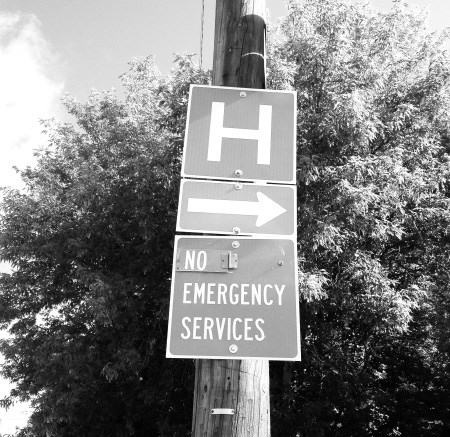There were $10 million spent on renovations at the Preeceville and District Health Centre so that health services could be offered under one roof but there is a growing outcry that the health centre is failing to serve the area.
Examples include the hospital being on emergency bypass more often, which only adds to the workload carried by the local ambulance service. Questions of safety are being raised by the public.
The family of Floyd Head, who lived only six houses away from the Health Centre, recognized that he needed emergency intervention, but after making a call to the Preeceville Health Centre, the family was informed that the hospital was on emergency by-pass for that week. It was suggested to call an ambulance to transport him to Yorkton.
“From the time the ambulance arrived until he was through the doors in Yorkton, it was three hours,” said David Head, Floyd’s son. He also accounted for the time paramedics needed to prepare his father for the trip.
“Everything that was done for him in Yorkton could have been done in Preeceville,” he said.
Eventually, Head was airlifted to a Regina hospital for treatment. Less than two days after the heart attack, he died at the age of 74.
“Even if Dad had passed, I could rest a lot easier knowing our health care system had done everything in its power to save him. It affects everyone in the community and area.
“We need to all rally together and have our voices heard. The most effective way is to call the health minister,” David said.
He also suggested that people call Katherine Nor-ton, an assistant in the NDP health critic’s office, or the health minster’s office assistant Ashley Boha.
The Sunrise Health Region needs to be held responsible and nothing else is acceptable, Head said. Preeceville has a state-of-the-art new facilty that is sitting with closed doors.
He said the health minister would not accept any of his calls but when in Regina, the family talked to the media, a meeting with Roberta Wiwcharuk, the vice-president of integrated health services for the Sun-rise Health Region was arranged.
Head was frustrated by the lack of response she offered on any issue raised. “A solution needs to be found and we need to eliminate bypasses all together. In other health regions there are no bypasses and the health region is prioritizing their hospitals. We need to stand together so the hospital does not turn into a full long-term-care facility,” he said.
Without an emergency room, Head said his father could not receive any “clot-busting” medication. His father’s condition deteriorated from being conscious and talking to being unresponsive. The Preeceville Health Centre is equipped to offer 24-hour emergency care, and did so up until the beginning of June when one of the town’s two physicians decided to move to Regina. With only one doctor left, the Sunrise Health Region decided to shut down the Preeceville emergency room every second week. During the bypass weeks, ambulances are instructed not to stop in Preeceville. To access emergency services in Canora, it takes a mini-mum of 30 minutes and to make it to Yorkton it takes a minimum of one hour.
In speaking with various media outlets, Wiwcharuk, said it is not reasonable to expect a physician to be on call 24/7. Sunrise chose the schedule, alternating emergency services bypass weeks, to make it a little more consistent, so the community knows when emergency services are available.
Wiwcharuk said there was never true 24/7 emergency coverage even with two physicians. Sunrise is working on the physician recruitment process through the Saskatchewan International Physician Practice Assessment Program (SIPPA), but the earliest a second doctor can be expected in Preeceville is in January.
Danielle Chartier, the op-position NDP health critic, has issued statements that the government needs a new strategy for rural health care, asking for a review of coverage at all rural facilities.
This isn’t about demanding there are specialists in every community,” Chartier said. “We need to find out what the key is to keeping health care professionals in rural Saskatchewan.”
Chartier referred to Craik and Assiniboia as other communities where health services have also been reduced.
A government spokes-woman said the overall supply of Saskatchewan physicians has grown by nearly 28 per cent since 2007. Nearly 200 doctors are taking part in or have already been approved through SIPPA and most are working in rural areas.
“People who live in Preeceville, Assiniboia, Craik, Biggar, Central Butte and other communities have had their health care services clawed back or disrupted,” said NDP Health critic Danielle Chartier.
Head’s son will never know if his dad could have survived with quicker access to treatment – but he said no person should have such a long wait in an emergency.




